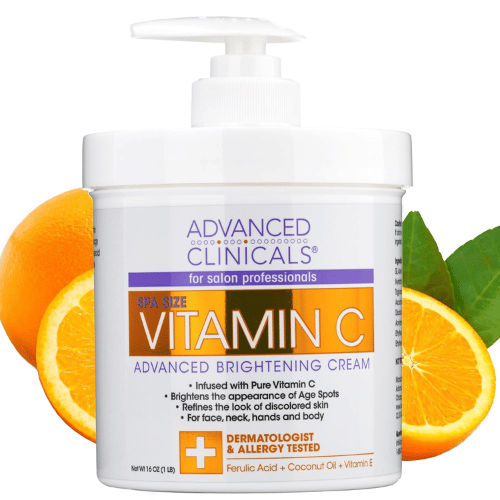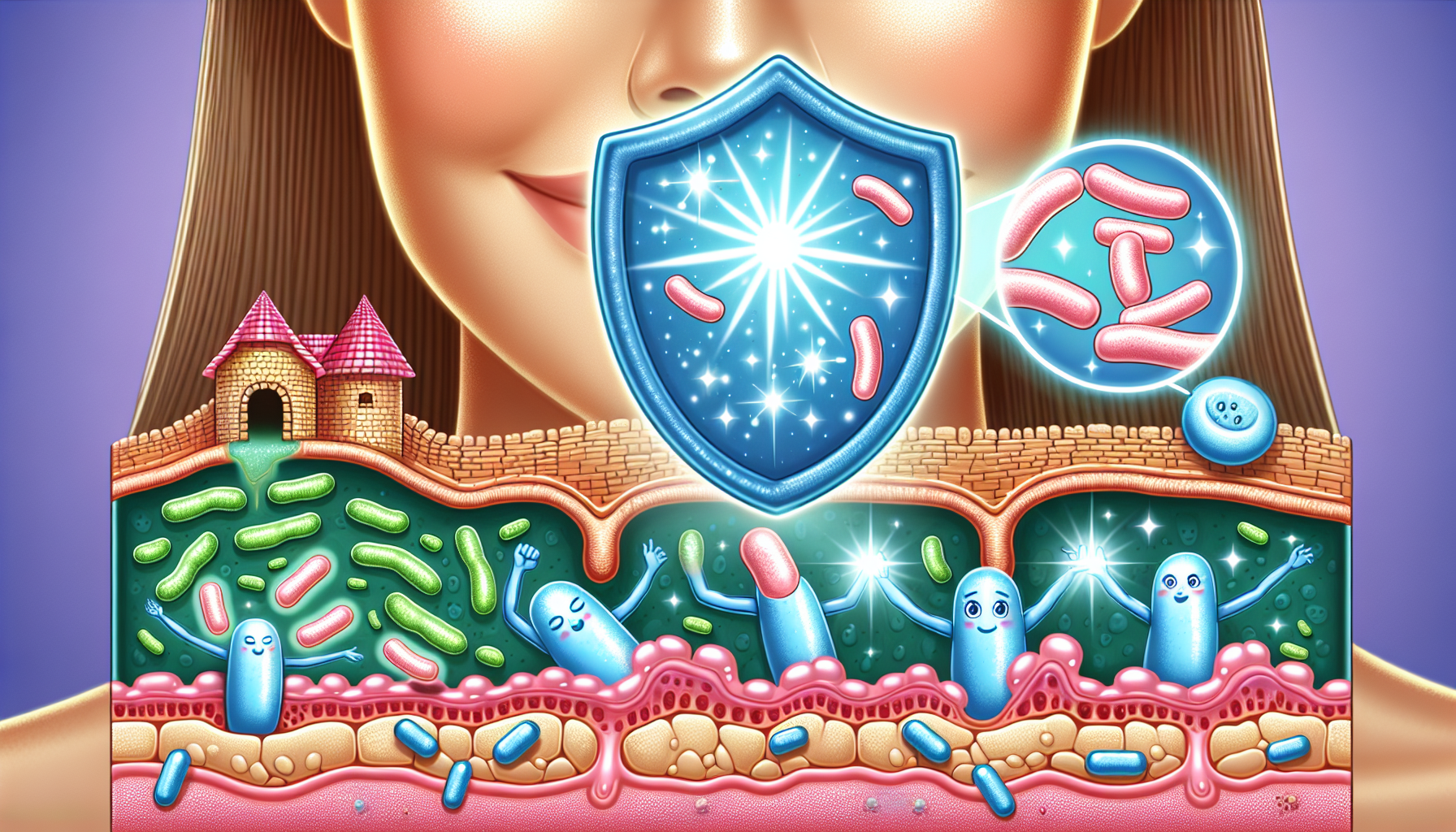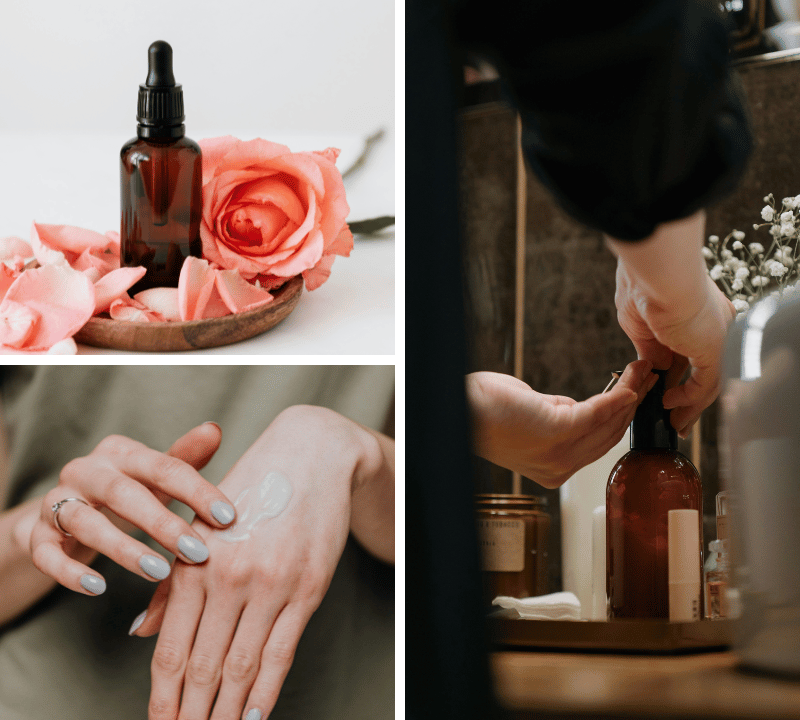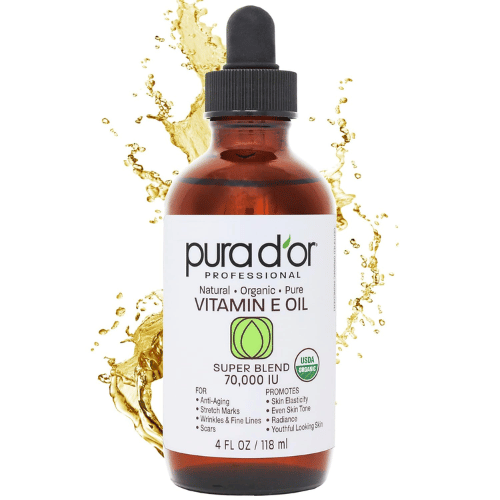Are you overwhelmed by the myriad options when searching for the best supplement for skin? Let's unravel the science behind the most effective supplements that promise not just words but real, visible benefits for skin health. In this guide, we'll explore critical nutrients like Vitamin C, Vitamin E, and Omega-3 fatty acids, which have been shown to enhance skin health and appearance. These supplements support skin barrier function, promote collagen production, and protect against harmful UV rays, ensuring your skin remains hydrated, radiant, and youthful.
Understanding the intricate relationship between diet and skin is crucial. A balanced diet of essential vitamins and minerals lays the foundation for skin health. While dietary supplements can offer additional support, they are not substitutes for a nutritious diet. Managing your intake of sugar, carbohydrates, and alcohol is equally essential, as these can negatively impact your skin. Personalization is key—consulting with healthcare professionals to tailor your supplement regimen can address nutritional deficiencies and specific skin conditions, ensuring optimal benefits without adverse effects. Let's dive into the world of supplements that truly benefit skin health and help you achieve that coveted, glowing complexion.
Key Takeaways
- Supplements such as Vitamin C, Vitamin E, Omega-3 fatty acids, and others like zinc and biotin play critical roles in maintaining and improving skin health, with benefits including enhanced hydration, increased collagen production, reduced inflammation, and protection against UV damage.
- A balanced diet rich in essential vitamins and minerals is foundational for skin health, and while supplements can provide additional benefits, they are not substitutes for a nutritious diet. It’s essential to manage the intake of sugar, carbohydrates, and excessive alcohol, which can negatively impact skin health.
- Personalization of supplement intake is key, and consultation with healthcare professionals is advised before starting any new supplement regimen. Factors such as dietary deficiencies, existing skin conditions, and potential adverse effects or nutrient excesses should be carefully considered.
Unlocking Radiant Skin: Top Supplements to Consider

Radiant skin is more than just a beauty standard. It’s a reflection of your overall health and well-being. What you feed your body directly impacts the health of your skin. Supplements can enhance your skin's health if your diet lacks nutritional variety or your body struggles with nutrient absorption. These nutritional powerhouses profoundly influence your skin barrier, offering myriad benefits for skin health. Some of the key benefits of supplements for skin health include:
- Improved hydration
- Increased collagen production
- Reduced inflammation
- Enhanced skin elasticity
- Protection against UV damage
Incorporating these supplements into your daily routine can support your skin’s health and achieve that radiant glow.
Three important supplements are often recommended by dermatologists for radiant skin: Vitamin C, Vitamin E, and Omega-3 fatty acids. These essential nutrients are the building blocks of healthy skin, each bringing unique benefits.
Vitamin C Powerhouse
Vitamin C is not just a citrus superstar. It’s also a powerful antioxidant that shields your skin from ultraviolet damage, fortifying its structural integrity and barrier function. This vitamin is a skincare hero known for its protective properties, from oranges to serums.
Furthermore, Vitamin C has additional benefits. Supplementing with this vitamin can increase collagen production, essential for maintaining your skin’s elasticity and improving its overall appearance. So, whether you’re sipping on a glass of fresh-squeezed orange juice or applying a topical serum, Vitamin C is your skin’s best friend.
One standout product that meets all the criteria for a top-of-the-line Vitamin C topical cream is Advanced Clinicals - Vitamin C Cream Face & Body Lotion Moisturizer. With over 47,000 customer reviews on Amazon and more than 66% of reviewers giving it a 5 out of 5 rating, this product is a testament to its quality. Additionally, it sells over 4,000 units a month on Amazon alone.

Anti Aging Skin Care Firming & Brightening Cream For Body, Face, Uneven Skin Tone, Wrinkles, & Sun Damaged Dry Skin
Vitamin E - The Protective Antioxidant
Vitamin E is another antioxidant powerhouse, working tirelessly to protect your skin cells from environmental damage. This fat-soluble vitamin is critical for maintaining a healthy skin barrier function, keeping moisture locked in and harmful elements out.
Vitamin E also has other benefits beyond hydration. This versatile vitamin also offers therapeutic benefits for skin conditions such as atopic dermatitis and psoriasis. Vitamin E is a skincare staple in cosmetic products that deserves a spot in your routine, often found in forms like alpha-tocopherol and alpha-tocopherol acetate.
One of Amazon's top Vitamin E topical serums is PURA D'OR - ORGANIC Vitamin E Oil Blend. This product sells over 10,000 units a month and has a customer rating of 4.7 out of 5, with over 80% of reviewers giving it a perfect 5 out of 5 rating.
Omega-3 Fatty Acids - For Inflammation and Hydration
Omega-3 fatty acids may be famous for their heart health benefits, but their role in skin health is just as impressive. These healthy fats can improve skin barrier functions, assist with hydration, and alleviate inflammatory issues such as acne and dry skin.
Omega-3 fatty acids provide more than just moisturization. They also contribute to skin repair, healing various diseases, preventing UV radiation, and alleviating symptoms of dryness and irritation. So, whether you’re dealing with a pesky pimple or dry patches, omega-3s could be the skin savior you’ve been looking for.
The Role of Vitamin D in Skin Health

Often referred to as the “sunshine vitamin,” Vitamin D significantly impacts skin health. Despite its importance, a whopping 42% of Americans are deficient in vitamin D, impacting overall health and well-being and skin homeostasis.
Vitamin D works its magic by reducing inflammation, which can aid in treating skin conditions such as psoriasis, eczema, and vitiligo. But that’s not all. Vitamin D also acts within a cell’s nucleus to stimulate cell proliferation and regulate functions, offering protective effects against skin cancer and other skin cancers.
Beyond skin health, Vitamin D assists in maintaining calcium balance in the body, which is crucial for various bodily functions, including skin health. So, next time you step out in the sun, remember you’re not just getting a tan. You’re also fueling your body with one of the most essential vitamins for skin health.
Biotin Boost: More Than Just Hair and Nails
Biotin, a B vitamin, is widely recognized for its benefits to hair and nails. However, it is equally vital for skin health. Biotin facilitates the health of your skin, hair, and nails by playing a crucial role in the metabolism of glucose, fatty acids, and amino acids.
A biotin deficiency can lead to skin problems such as rashes, hair loss, and brittle nails. But fear not; supplementation can improve skin health for those with such a deficiency. However, it’s worth noting that there is no solid evidence to support biotin supplementation improving skin conditions for those without a deficiency.
As we age, our body’s ability to absorb nutrients required for skin health, like those needed for collagen production, tends to decline. This underlines the importance of nutritional support like biotin, especially post-menopause.
Zinc: The Essential Mineral for Healthy Skin

Although zinc is a trace mineral in our body, its role in skin health is substantial. The skin holds approximately 6% of the total zinc in the human body, highlighting its significance for skin integrity.
A zinc deficiency can result from poor dietary intake, reduced absorption, or increased bodily loss, leading to multiple skin diseases. Fortunately, zinc supplements can come to the rescue, supporting skin cell turnover and renewal with their anti-inflammatory effects. It’s also incorporated into treatments for skin conditions like acne, eczema, and wrinkles.
Risk factors for zinc deficiency include vegetarian or vegan diets, gastrointestinal disorders, and pregnancy. However, foods like oysters, meat, fish, and eggs are prime dietary sources of zinc, providing an easy way to boost your intake.
For more in-depth information on top-rated zinc supplements, check out our article “The Health Enthusiast's Dream: Five Of The Best Zinc Selenium Supplements You Need to Know.” This article explores five of the best zinc and selenium products on the market, essential trace minerals necessary for many functions, including wound healing and skin health. This can give you a head start on selecting the best zinc products available. Feel free to check it out here.👇
Probiotics and Skin: A Link to Gut Health

Beyond aiding digestion, probiotics, the friendly bacteria in your gut, also enhance your skin’s natural barrier. They can also enhance your skin’s natural barrier against pathogens, reduce harmful bacteria, and potentially help with conditions like acne and rosacea.
Certain probiotics can even increase the skin’s production of ceramides, lipids that help retain moisture and control acne-causing bacteria. However, the benefits of probiotics extend beyond the bacteria themselves. Prebiotics, the food for good bacteria, contribute to a healthier skin microbiome and enhance the effectiveness of probiotics.
Postbiotics, the beneficial byproducts of bacterial metabolism, can improve skin immunity and aid in water absorption, which are vital for maintaining skin health. High-quality probiotics, like Thorne FloraSport 20B Multi-Strain Probiotic, can even aid in treating conditions such as atopic dermatitis, psoriasis, and acne.
Collagen Supplements: Do They Work?
Recently, collagen supplements have become popular for their claimed benefits, including:
- Improving skin elasticity
- Reducing wrinkles
- Promoting wound healing
- Counteracting the decline in the body’s natural collagen production with age
- Enhancing collagen production
- Offering benefits for hair, skin, and nail health.
Research indicates that collagen supplementation can improve skin appearance and texture. Collagen supplements are often available in powder form, with a daily intake ranging from 2.5 to 15 grams, aligning with various research recommendations.
Supplements like Vital Vitamins Multi Collagen Complex This powerful capsule formula supports your skin, nails, hair, and joints by replenishing your body with essential collagen proteins. With five different types of hydrolyzed collagen peptides from beef, marine, chicken bone broth, and eggshell membrane sources – you can get all the nourishment you need in just one simple capsule. So, if you’re looking for a one-stop shop for skin health, collagen supplements might be the answer.
The Synergy of Multivitamins for Comprehensive Care
In terms of skin health, a single nutrient might not always suffice. That’s where multivitamins come in. A balanced multivitamin can enhance skin health by improving its structure and function as a barrier, preventing water and electrolyte loss, and aiding in collagen synthesis.
Dermatologists often recommend multivitamins with essential vitamins such as:
- Vitamin A
- Vitamin C
- Vitamin D
- Vitamin E
- Topical vitamin
for maintaining skin health. Some multivitamins also include nutrients that play roles in skin hydration and wound healing, making them a comprehensive choice for skin care.
A multivitamin could enhance skin appearance, especially if you lack skin-impacting nutrients like specific B vitamins and zinc. So, if you’re looking for a one-stop solution for your skin health, don’t overlook the power of a good multivitamin.
Herbal Enhancements: Turmeric and Green Tea Extracts
Herbal supplements such as turmeric and green tea extracts provide a distinct approach to skin health. These natural remedies are packed with anti-inflammatory and antioxidant properties, providing benefits for skin health.
Curcumin, the active component in turmeric, is known for its anti-inflammatory and antioxidant properties and has been used for centuries for its cosmetic benefits. From imparting a glow to the skin to assisting in faster wound healing, turmeric is a versatile addition to your skincare routine.
Hyaluronic Acid: Keeping Skin Plump and Hydrated
Hyaluronic acid is renowned for its hydrating properties. Known for its ability to retain moisture, a mere quarter teaspoon can hold about one and a half gallons of water, making it a powerful hydrator for the skin.
Consistent application of hyaluronic acid, whether through skincare products or oral supplements, can enhance skin elasticity and make it more supple. So, if you want to plump up your skin and keep it hydrated, hyaluronic acid could be your go-to.
The Impact of Diet on Skin Health
Despite the significant role dietary supplements play in skin health, they cannot perform miracles. A well-balanced diet rich in vitamins and minerals supports the biological processes of both young and aging skin, influencing how the skin ages. A diet high in:
- vitamin A
- vitamin C
- vitamin D
- zinc
- omega-3s
- protein
Combined with sufficient hydration, beneficial skin health contributes significantly to optimal skin health.
However, not all foods are skin-friendly. Diets high in fatty foods, sugary foods and drinks, and excessive alcohol can lead to increased inflammation and are associated with conditions such as acne breakouts and skin dryness.
Limiting the intake of sugar and carbohydrates is beneficial for skin health, as these can cause damage to the skin’s collagen, affecting its elasticity and appearance. So, while supplements can boost your skin, don’t forget the power of a balanced diet.
Personalizing Your Supplement Strategy
Tailoring your supplement strategy is vital for maximizing the benefits of your skincare regimen. It’s essential to consult with a healthcare professional before starting any supplement regimen, especially if you have underlying health conditions or experience skin changes after beginning a supplement.
Choosing the right supplements for your skin may involve considering factors such as dietary deficiencies, existing skin conditions, and the potential benefits of specific nutrients like omega-3s, vitamin C, and probiotics. But remember, it’s not one-size-fits-all. Certain supplements such as vitamin B6, B12, kelp, whey protein, and steroids may heighten some people's risk of developing acne. It’s important to know these supplements' effects on your skin..
Excessive oral intake of certain supplements like vitamin D can cause issues such as excessive calcium buildup in the blood, leading to adverse side effects like nausea and kidney failure; vitamin D supplementation should be done under medical supervision to avoid complications, including vitamin D deficiency.
Lastly, if you struggle to swallow pills, gummies can be an alternative, but keep in mind they often contain added sugars.
Time To Wrap Up Our Discussion
Achieving radiant skin doesn't have to be a complex, uphill battle. Combining the best supplements for your skin, a balanced diet, and personalized care can nourish your skin from within, leading to a youthful glow that transcends the surface. Essential nutrients like Vitamin C, Vitamin E, and Omega-3 fatty acids play critical roles in supporting skin barrier function, promoting collagen production, and offering anti-inflammatory properties. Addressing nutritional deficiencies through dietary supplements can significantly improve skin health, enhancing skin hydration and elasticity while protecting against environmental damage and skin diseases.
Remember, supplements are not a one-size-fits-all solution, and what works for one person may not work for another. Always consult with a healthcare professional before starting any supplement regimen, especially if you have underlying health conditions. The journey to healthy skin is holistic, involving more than just supplements. A healthy diet rich in essential vitamins and healthy fats, sun protection, and proper skincare is vital. Embrace this journey with knowledge, patience, and an open mind, and watch as your skin transforms into its healthiest, most radiant self.
Still, Looking For More? Here Are Brief Answers To Some FAQs
Are supplements necessary for skin health?
Supplements can enhance your intake of skin-essential nutrients, especially if your diet lacks nutritional variety or your body struggles with nutrient absorption. However, a balanced diet remains crucial for skin health.
What role do probiotics play in skin health?
Probiotics can enhance the skin's natural barrier, reduce harmful bacteria, and potentially help with conditions like acne and rosacea by increasing the production of ceramides. This can lead to healthier, more resilient skin.
Do collagen supplements work?
Yes, collagen supplements can improve skin elasticity, reduce wrinkles, and support wound healing, leading to healthier and more youthful skin.
How does diet impact skin health?
A well-balanced diet with plenty of vitamins and minerals supports skin health, while minimizing sugar and carbohydrates can prevent collagen damage.
How can I personalize my supplement strategy?
To personalize your supplement strategy, consult a healthcare professional to consider dietary deficiencies, potential benefits for your specific needs, and the risk factors associated with certain supplements. Always seek medical supervision to avoid potential issues with excessive intake of supplements.
Thanks for taking this journey to explore the best supplement for your skin. If you want to add to your library of knowledge and are interested in diving deeper into some of the supplements mentioned in this article, you should check out the links above. It could be a huge time-saver - you won't be sorry you took a look.
Also, please return soon to check out our next review of another incredible supplement – we’re always looking out for YOU!
*We are NOT qualified medical advisors. The content here is only based on our personal opinions and research and should NOT be used as a substitute for a healthcare professional's advice!
**This site contains affiliate links. We may earn a small commission through links in this post.












Member discussion